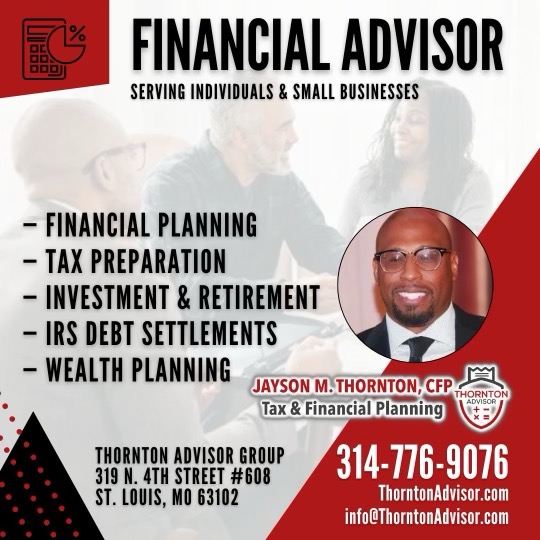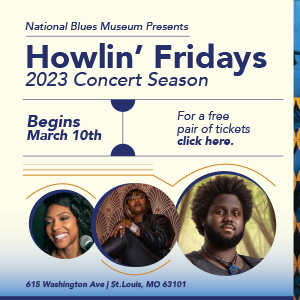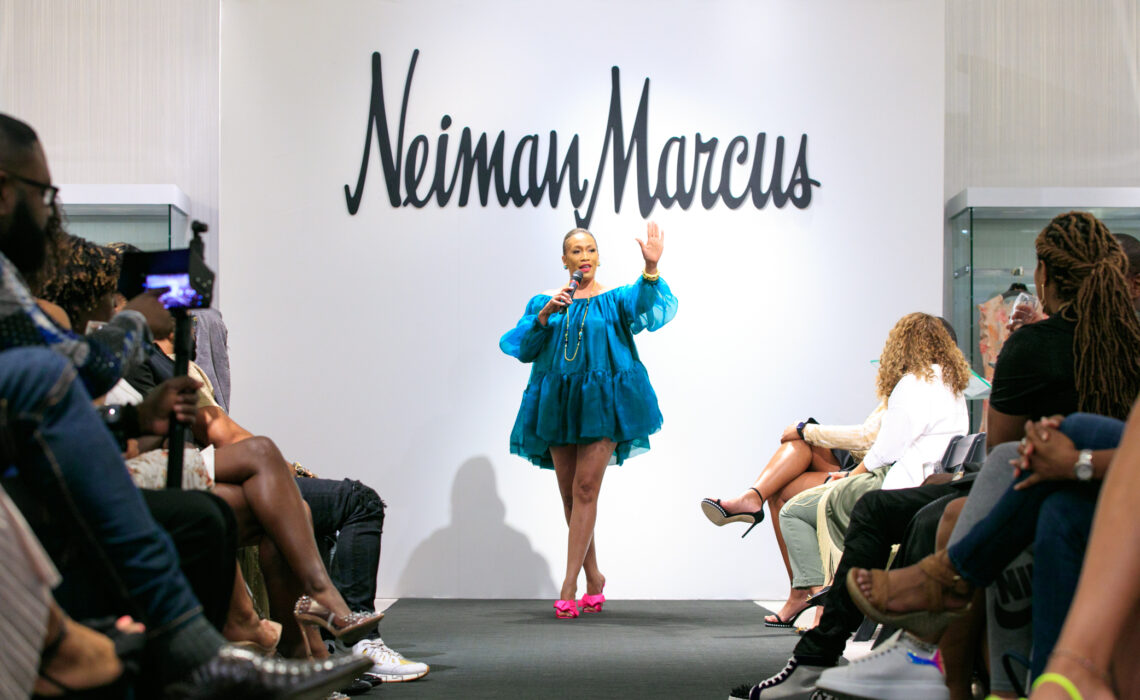
As told to Shadress Denise
Let’s take a trip down memory lane. It’s the mid-90s, and a voice, an unforgettable voice that is new to the airwaves captures a city’s attention. It’s not the voice of someone we’ve heard before, yet someone we will come to know as the voice of St. Louis…Tammie Holland. Her infectious laugh and her memorable tone captivated a city that turned the dial daily to hear what she had to say. Her reign began during a time when the internet was a figment of our imagination, and urban radio was how we as a people connected to one another through music, comedy, and conversation.
Tammie transformed the sound of radio while inspiring people to be their authentic selves. Candid storytelling is her artistry that she has beautifully painted over the years. I would be remiss in my ability to tell a story, her story, if I did not acknowledge her incomparable ability to do the same. She is and has throughout her time become a maven for female broadcast journalists by showing what it means to not just be an outlet for women’s voices, but a voice for our community. She is a phenomenon, a champion for St. Louis who has shown how strong we are capable of being through her optimism, transparency, grace, and honesty.
Fast forward twenty years, and she still gives us a reason to pause and listen to what she has to say. Her resume is one to rival and her reputation is worthy of admiration. In her own way, Tammie carved out her own lane. She is a steeple. A bona fide piece of St. Louis history. And like her fellow St. Louis idol, Josephine Baker, she deserves to be immortalized. Her name imprinted in stone along the Delmar Loop because she is not just the voice of St. Louis, but a part of a longstanding history of greats that have emerged from a city known as the gateway to the west.
In an intimate interview with DELUX, she tells us about her love for radio, how she’s kicking cancer’s ass, and why she will always let it be known that she’s from the Lou and she’s proud.
THE MAKINGS OF TAMMIE HOLLAND
I will have to say that you are probably the first person I’ve interviewed that I have not been able to write down a slew of questions for, and for whatever reason, I feel like maybe it’s meant to be that way. I really want this to be more informal. I don’t feel like people know your story as much as they should. And so, I really want to hear your story. Let’s start with who is Tammie Holland through Tammie’s eyes.
Today, I am a mother who is fighting stage four colon cancer. And I am a forever lover of St. Louis. That is who I am. And a child of God and a lover of chocolate [laughing].
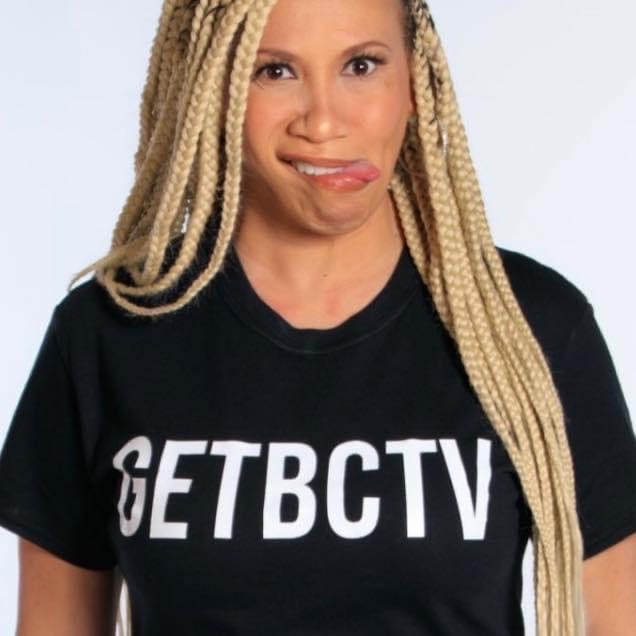
Of course, who doesn’t love chocolate [laughing]. Tell me, why you decided out of all the fields you could have gotten into, especially with your very vivacious personality, you chose journalism?
You know in high school, my senior year of high school, I got this invitation to go and visit the school counselor. He needed to have a stern conversation with me about my future because he was most concerned and worried about me. I was never really like a fantastic student in school. But it wasn’t that I could not have been, I just chose not to be for some reason. I hate to even say that as I am a mother right now.
But at any rate, I go into his office, he says, “‘Well, Miss Holland, what is it that you want to do with yourself? And I told him, I said, ‘Listen, I really want to be a reporter. This is what I want to do. I want to be reporter’. And then he says, ‘Have you even taken the ACT? You know, your aptitude tests are just horrendous. You know, at best you can get into a state school. But even with graduating from a state school, Miss Holland, the field is far too competitive, and you would never ever get a job.’”
And so, because he said that, I just looked at him as an authoritative figure and that he knew what he was talking about, you know, and so I just simply said alright. I had some family members who were very successful in the education field, I’m like, alright, I’ll become a teacher. So, I go away to college. I study education for a few years. It just dawned on me that you know what, I’m bored miserably. I love human life, but I’m just not so certain that I just want to be an educator. And I just there’s some things that I got to do.
I dropped out of college, flew around the world for a little bit as a flight attendant, and after having this one cool trip to Italy with some girlfriends—my mom kind of like got on my case. I end up calling my girlfriend Marie who is my stylist extraordinaire. I just absolutely love her. We meet up for coffee in Clayton, and we’re walking through Clayton. I was just a hot mess. Then I look up and I see these call letters for this radio station. I see something about some school or something on the outside of the doors.
I asked her what they did. She told me people who want to be on the radio come here and they learn about the broadcast and the radio industry. Afterward, they get jobs in radio. I go home and tell my mom, this is it, I’m gonna be in radio. People get paid to do this; this is what I’m going to do. She’s like you’re bananas but whatever. I go through the program. And even before I graduated from school; I started getting job offers and internship opportunities. I had the fortunate opportunity to have had a great teacher. His name was Mark Clark.
And at the time Mark Clark worked for Magic 108. He was a part of this morning show called The Breakfast Club with Tony Scott. He told me about an internship they had. I go over and I get the internship with Magic. I start working my way in by doing commercials and making myself available. I eventually graduate from the program.
I didn’t start working there right away. I did community radio for 97.1. I started my career in the mid-90s and I’ve spent these years just working. At one point I was working like three jobs at one time. I was like the Mad Jamaican. And seriously, I do have Caribbean roots, so I feel I can say that [laughing]. But I was doing overnight news updates for Channel Five.
This was during a time when Jerry Springer was hot. Jerry Springer would come on. Then I would come on in between the commercial breaks of Jerry Springer. During this period, I would do news updates. This is before CNN which lets you how old I am. It’s so funny. I would do that and afterward, I would go over to the radio station and I would do early morning news. I was just busy. I spent the entire 90s grinding and working my butt off.
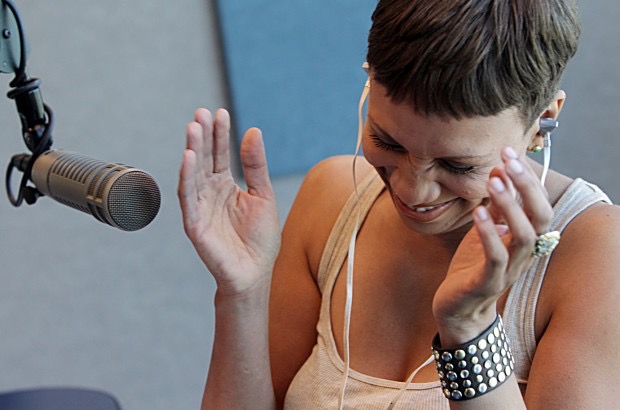
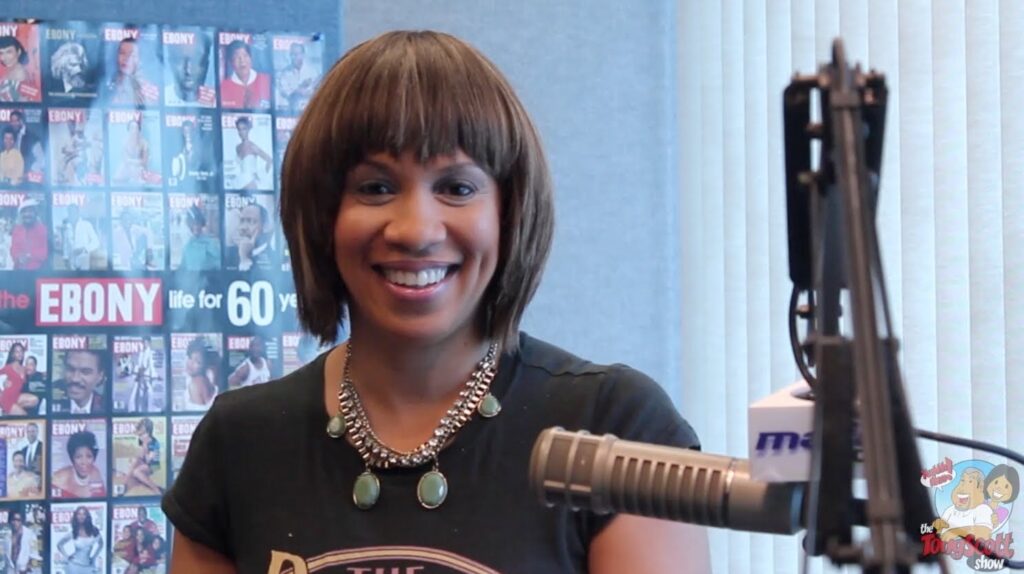
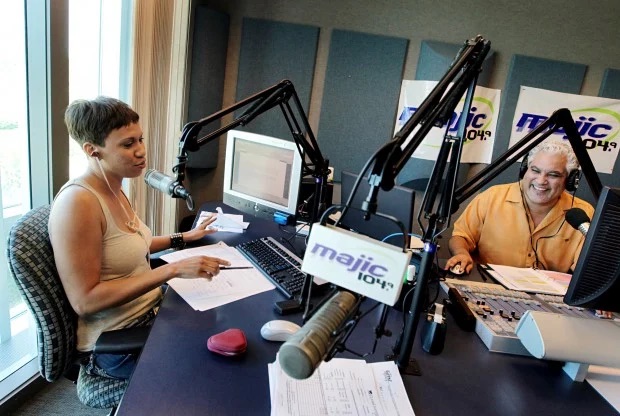
Wow, I am beyond impressed. Was Tony Scott your first official radio show?
No, the first show that I was on was at radio station called KDHX. It was a community radio station that I was on with Sylvester the Cat. He had this hip-hop show, and at the time it was underground. It was grimy and everybody was tuning into his show. He came on the weekends at like a crazy time, like midnight to like 4 am, and if you were a real hip hop head— you were staying up with Sylvester. I convinced Sylvester to give me a job, although I was so corny.
You know I did the I did hip hop news and I tried to give a little commentary, but that was short-lived. After that, I did some work with the legendary Charlie Tuna. Charlie Tuna was looking for some female perspective on sports-related issues. And I was a cheerleader in high school, but I was never ever like a sports fanatic.
I was seriously having difficulties understanding the difference between offense and defense. To go on to somebody’s really established sports program to offer commentary was probably not the best thing for me. That was very short-lived, but it was an experience. It would be a few years before I would reconnect with Tony Scott. But when we did, it was a fantastic working relationship. I’ll have to say that much. We were quite the team, the two of us.
“I always like to say this to young women coming up in the radio industry, ‘It’s not enough for you to just be an announcer. You must understand every aspect of the business.’”
HER CAREER
I had mentioned that I was interviewing you to a friend who’s also a writer, and she mentioned seeing you on UPN.
[Laughing] See, there you go. There’s another one of those jobs, mad Jamaican, I did it all. During UPN time, it was just all UPN for a second. And then I get the big call saying Tony Scott is looking for a co-host. I was handling community fairs for Mike and Steve Roberts. I would also do some public relations work for their hotel property, the Mayfair hotel here in St. Louis.
That was a lot of fun. Not only did I have an opportunity to be on air, but I also had an opportunity to stay connected with the community and the public through those other entities. As I’m working there, I get the call. I think that in the beginning, Tony didn’t want me. There was another woman who was working at Channel Four at the time, and he wanted her instead of me. But they pushed for me. They saw something in me and thought we would be good together. It took us a second to kind of warm up and hit our mark. But when we did, it was a really good thing.
I really used to enjoy listening to your show. Your dynamic was hilarious—both of you. I would love to know what your outlook on entering a predominantly male-driven industry was. How did you navigate that as a female—especially a female with a strong voice?
Very quickly you learn how to speak a language that the boys speak. For me, it was that I had to develop a very tough skin, so that when the quips came my way, I could swing back without deflating egos. It was always a very thin line to have to tread in the radio business because this was long before the MeToo movement.
I mean, I’ve got a million stories. Sometimes I think about writing a book. But for right now, I hold them and keep them close, until I think it might be beneficial to share. It was an interesting environment, but very early on, you begin to recognize who the players are. How they move, and how you should move to guarantee success in whatever it is that you’re doing. You know, it’s hard to explain. Basically, I learned quickly to know the room.
Aside from knowing the room, what other advice would you give female journalists that are coming behind you?
To be a master of your profession, that’s number one. No one can take away from you. That of which you know. As they say, you’re the total package if you are a baddie. You have everything all together. You are a master of several disciplines within the area in which you work. I always like to say to young women coming up in the radio industry, ‘it’s not enough for you to just be an announcer.’
You must understand every aspect of the business. You need to understand sales, and marketing, how to read ratings, understand your position and know everything about it. My advice to a young person coming up is simple. Be a master of your profession. Be versed in all things that you are a part of. Know your stuff!
I’ve always admired how poise and how graceful you are. Why was that important to always present yourself in that way?
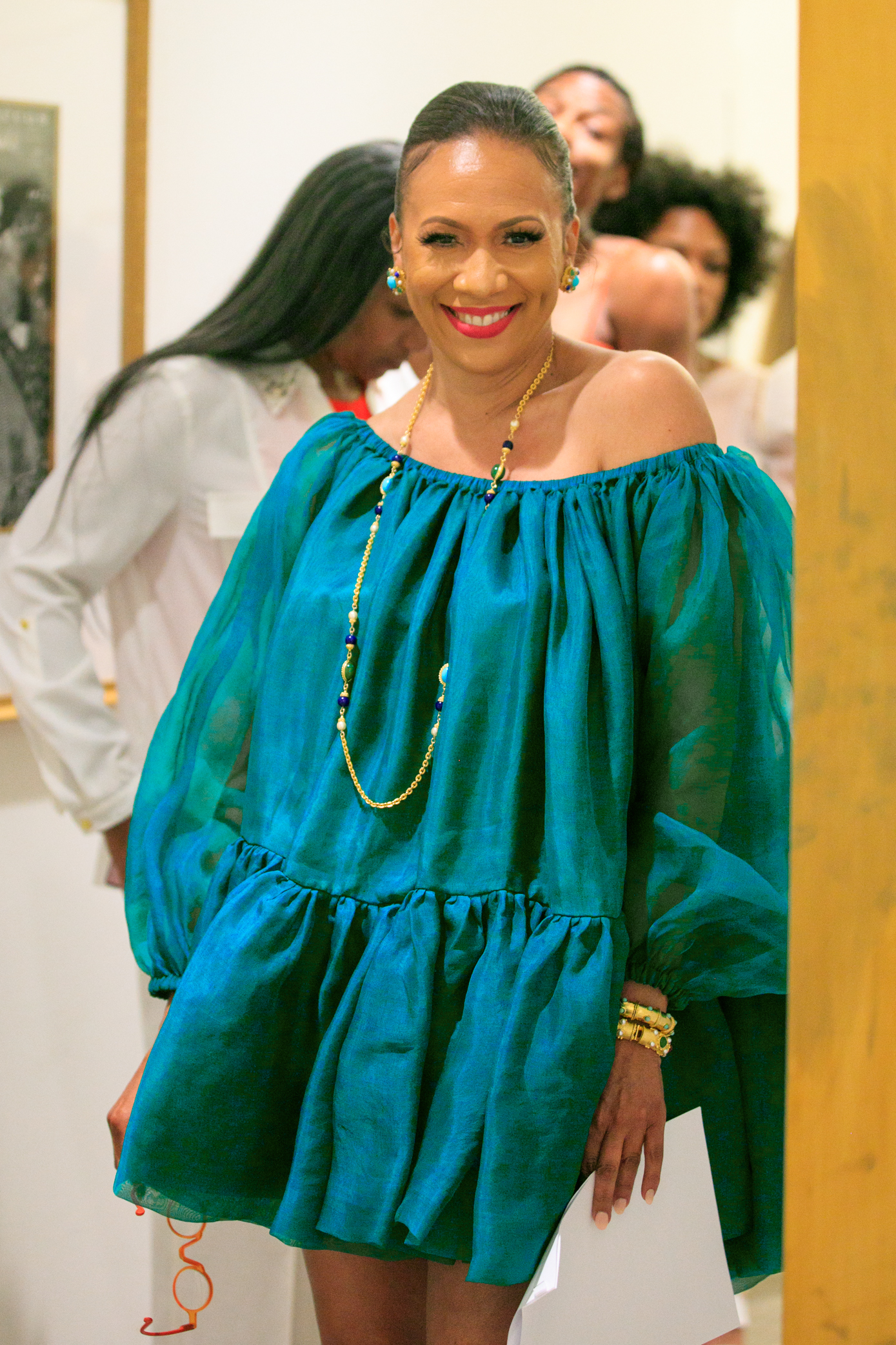
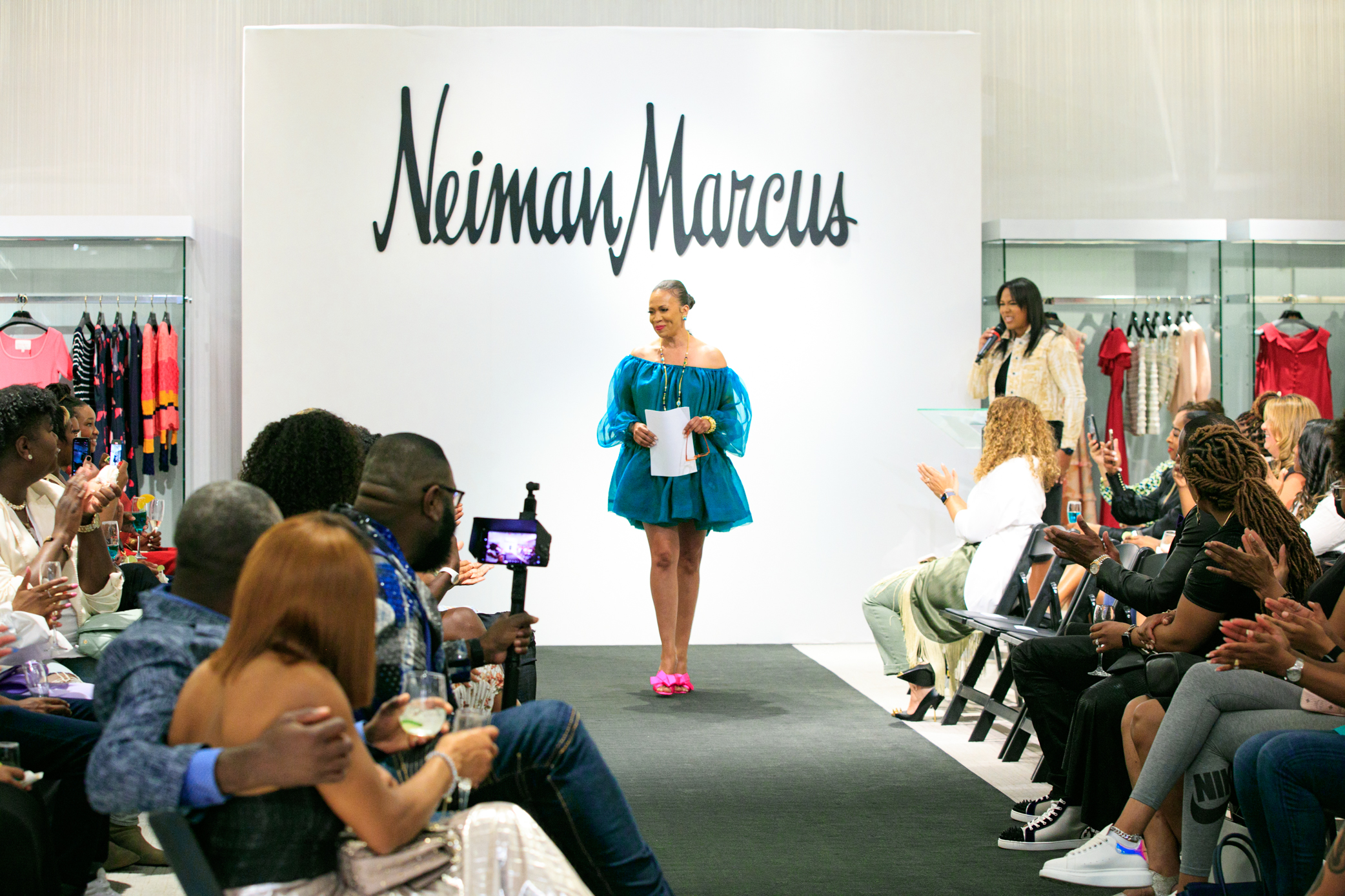
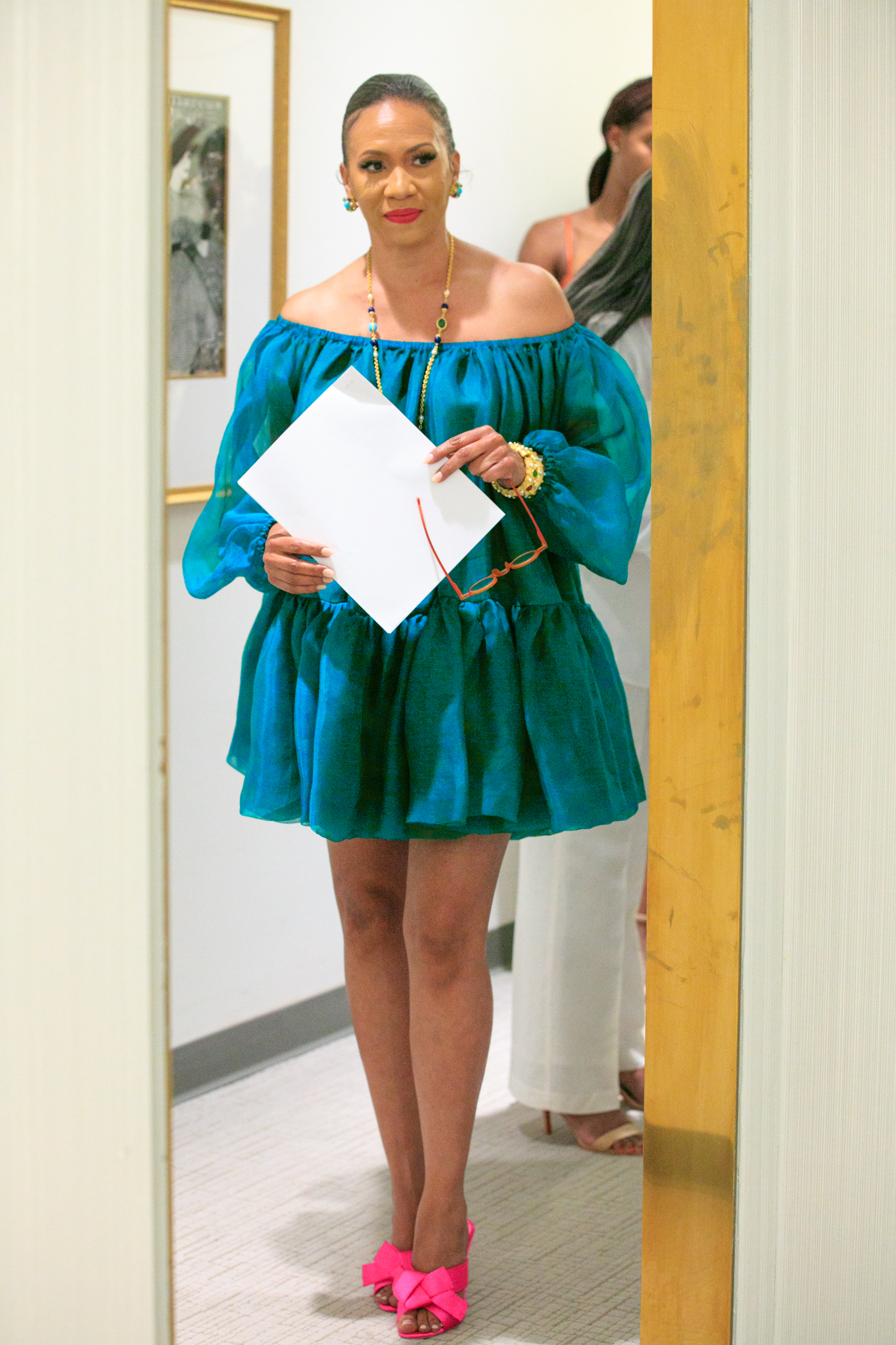
I think that’s really nice, but I was raised differently. I was raised to sit up straight, and to speak well. You know that’s a very difficult question to answer. Who I am is just who I am. It’s who I’ve always been. It’s what I know.
“I think oftentimes in this business, women sell themselves short. Perhaps we think that we must, to remain, and to exist…”
We always hear the saying “You have to leave St. Louis to make it,’ or ‘St. Louis doesn’t necessarily show you love until you make it.’” However, that formula doesn’t prove to be true for you. With your star rising, and the connections that you made, what made you stay?
I truly enjoyed a wonderful level of success that allowed me to have the most beautiful access to the city that I absolutely adore. I have lived very, very well in St. Louis. And I knew for a black woman in radio, for someone to offer me a job in another market, that maybe a similar size of some sort it didn’t make sense. Why would I leave and go someplace for a few additional thousands of dollars? Or perhaps, I would be leaving behind market connections, and established market value.
I do believe in myself. And there have been times in which an aspect of my personhood or opinion could have been something that would have carried on a national level, but it’s that I never wanted to go someplace else to have to rebuild and start over. It didn’t make sense for me. Maybe had there been an offer for me to have gone to New York to have done something in that respect, maybe I would have done that. But for no other reason. You gotta love Charlotte, North Carolina, or you gotta love Virginia Beach, but I’m not doing that.
What has radio taught you about yourself?
That’s an interesting question. I would have to say that there’s an ultimate separation between Tammie Holland—Meadow’s mother, and Tammie Holland, the radio personality. I don’t think that there have been times in my life that I have misconstrued the two, or I never have been one to have had a big head or to have been ego-driven. What has radio taught me? Hmmm…perhaps that I’m tough, I don’t know [laughing]. Because it really was a hard road.
It really was a tough job sometimes. Some people might say, “well, how in the hell is that tough? You go and you sit in a box for some hours. You listen to some music, and you make some announcements, and you eat free food. How was that tough?” It was mentally taxing a lot. There’s a lot that goes into all of that. So that’s what I would say. That I’m much stronger than I ever thought I was. I’m a tough girl because of radio.
I watched the video of you receiving the keys to the city, and officially having a Tammie Holland Day, congratulations on that, by the way. One of the things that stood out was when DJ Kut, got up there. He stated that a radio station at the time that was trying to recruit you, threw you breadcrumbs. And you respectfully declined. Another thing he mentioned was that you knew your worth. What would you say are the components that make up your worth?
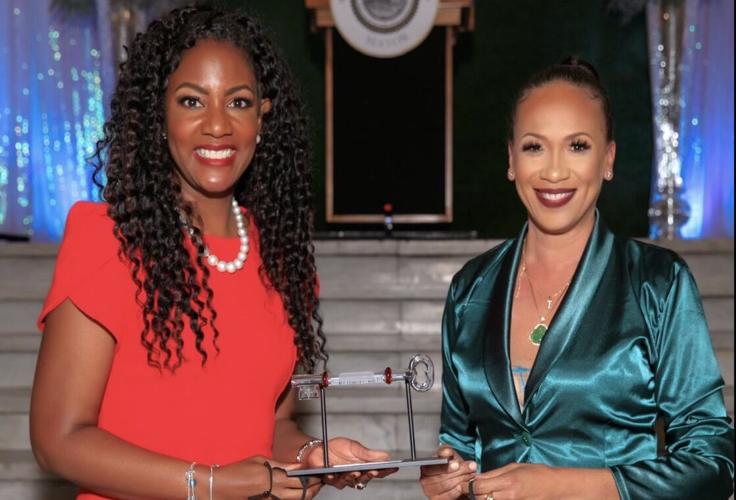
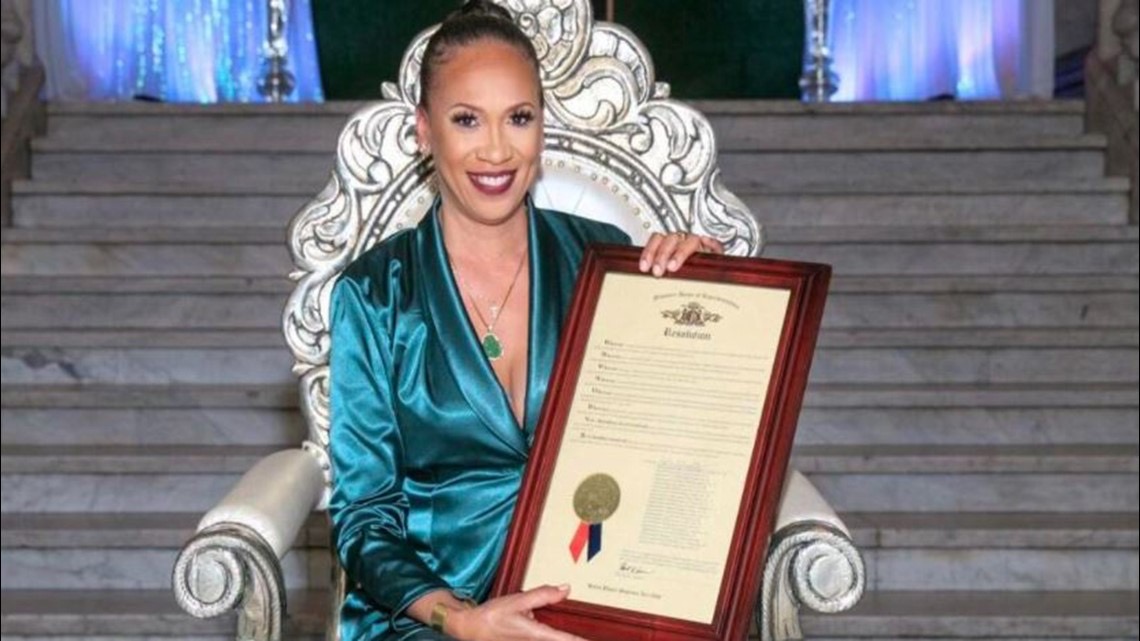
I value myself. And I have a very realistic understanding of who I am as a person what I am or who I am, and how it applies to whatever situation I might be in. I recognize my position and value in those things. I don’t think that that is a bad thing ever to understand and do. I think oftentimes in this business, women sell themselves short. Perhaps we think that we must, remain, and exist. In some respects, and in some instances; sometimes you have to take one for the team in order to get what you want.
But I felt at that moment that I had been there, and I had done that already. And that what I would be giving them was worth far more. The bottom line, I just know myself.
“I am very drawn to beautiful things, and beautiful people…”
MOTHERHOOD
We were all a part of your journey of becoming a mother. I remember when you would be on the radio talking about Meadow. How has motherhood changed you, even when you were in the thick of your career?
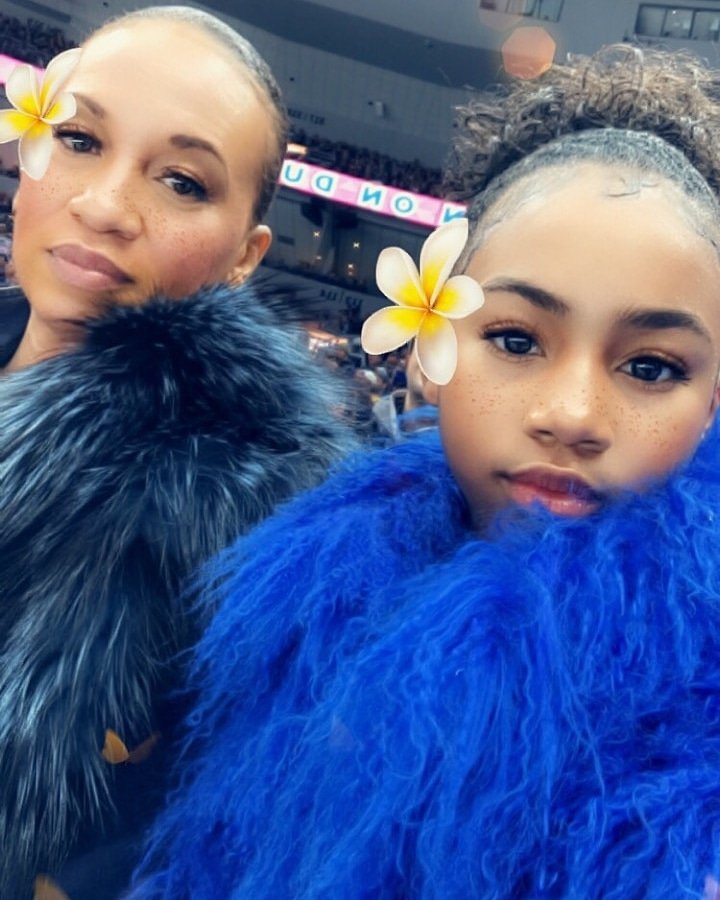
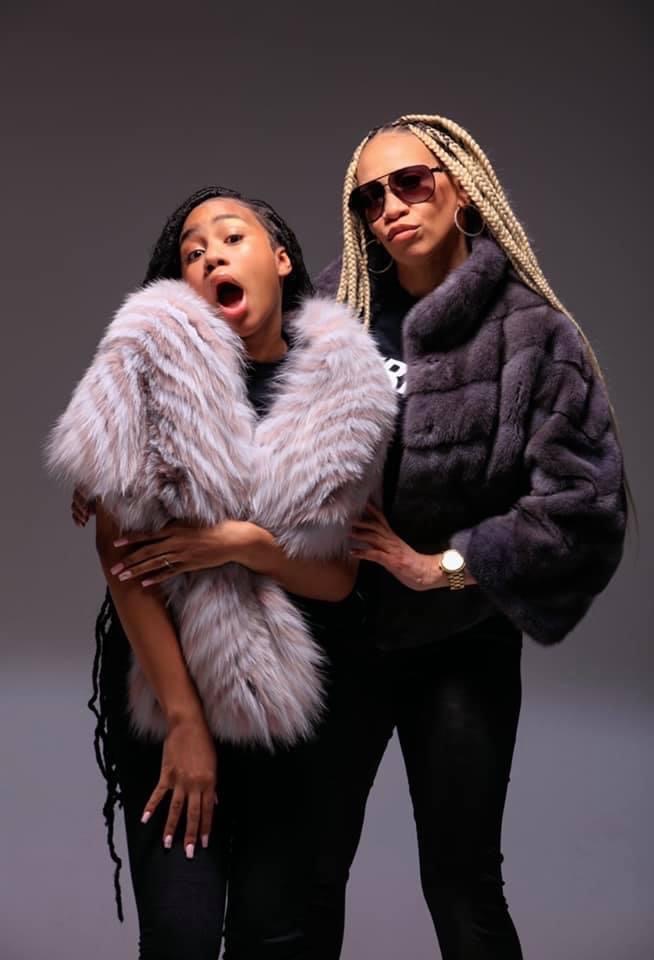
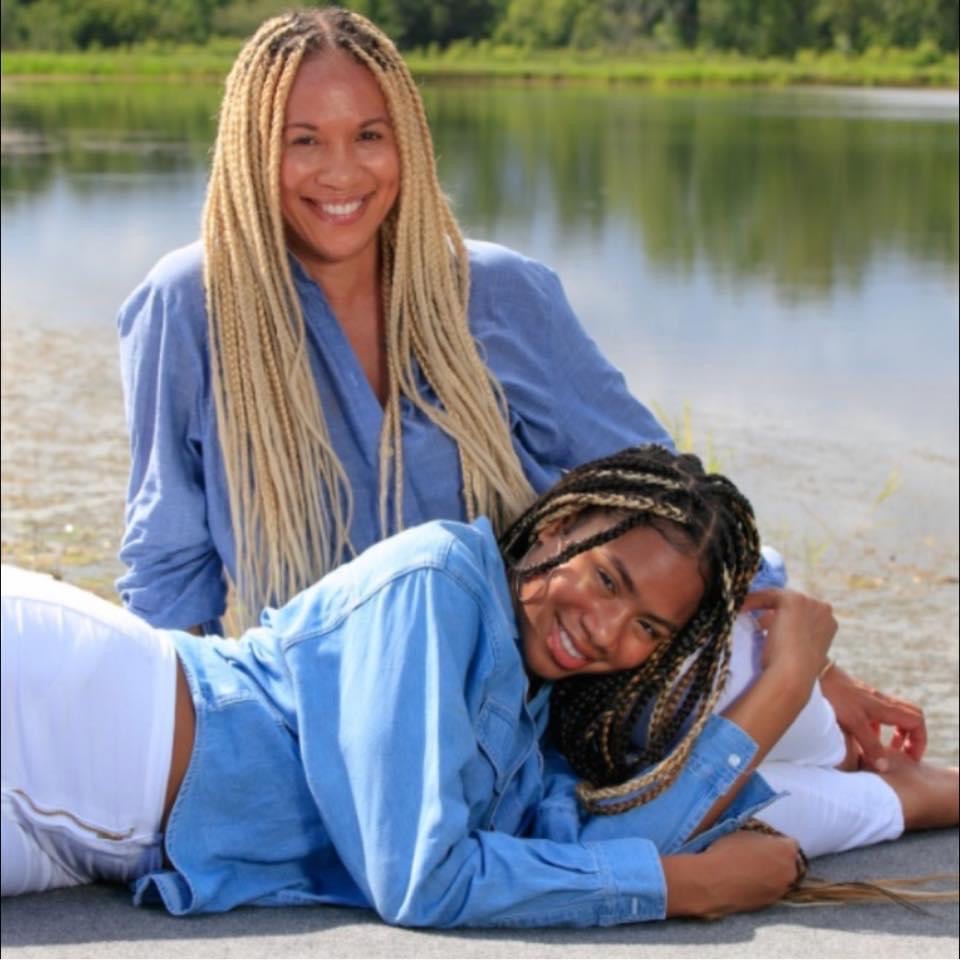
Hmm…the interesting thing about Tammie Holland, the personality, is that I am very drawn to beautiful things and beautiful people. It’s like I’m just all over the place because I’m just trying to collect all this beauty. That’s just my personality. When you are a mother, you can’t flip around and find all the beauty. You’ve got to focus, and you’ve got to listen. You’ve got to be available for one person. Not all these people, but for one person. I think that is the thing that changed me the most. It’s caused me to have to stop, be attentive, and be available to another human being completely. It has truly been a complete joy.
You say that there’s a distinct difference between Tammie Holland, the radio personality, and Tammie Holland, the woman, and the mother. How were you able to manage and control how much of yourself you shared and retain for yourself?
That’s funny [laughing]. At the height of my radio time, especially my time with Tony, there were very few conversations that would be off-limits. I think maybe that was something that would endear others to me, or others might find intriguing, because it wasn’t necessarily whatever comes up, comes out with her. But I would be very realistic in my approach, and in my response to typically whatever might be asked of me at the time. I saw no value in not being real.
“I recognized early on that my success came from being connected to those who listened and chose me on a daily basis…”
REINVENTING HERSELF
It appears you have stumbled back into broadcast journalism. Tell us about This Week with Tammie Holland.
Okay, so this is a funny story. I have to tell you how it all came about. I was still working at the radio station at the time, and I had been having conversations with Brown & Crouppen about putting something together. I ended up picking up the phone one day and calling Andy Crouppen because it was something we had previously been working on.
My relationship with Terry Crouppen was cultivated when I was an intern at Magic. He would come into the studio to sit in on shows, and chop it up with Mark and Tony, and I remember him always being very kind. Fast forward a million years later, I lose my job at iHeart in 2017—it was a Friday. Sunday morning, Terry calls me because he heard I lost my job. I thought it was so sweet. He told me he didn’t know what we were going to do, but we were going to put something together, and don’t worry about it.
In 2019, we ended up having a few meetings and conversations about this new medium they wanted to launch that would highlight all the wonderful aspects of St. Louis while connecting the firm to the community in an up close and personal way. I thought it was a great idea. From there we formed this bond and a great idea. They are truly wonderful people and I love Terry Crouppen. He is truly one of my favorite people.
You mentioned in your speech how it was important for you to cultivate authentic community relationships. Where does your importance for community derive from?
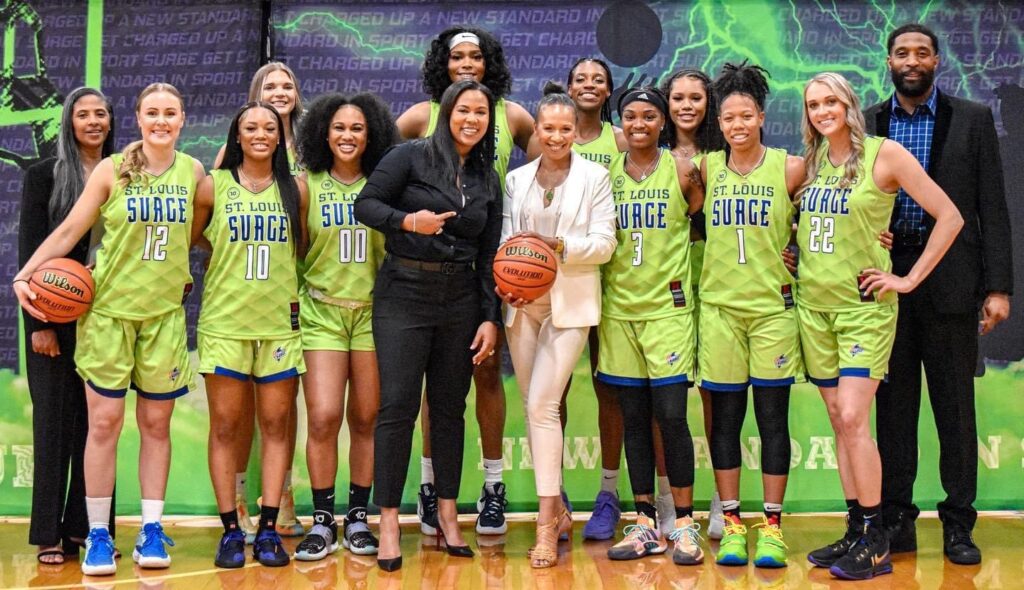
I recognized early in my career what I was doing in radio, and that my success came from being connected to those who listened and chose me daily. I always wanted what I was doing to not just fuel me, but to also fuel others, and to be a positive vehicle for others. And so, because I recognized early on the importance of connections, I also recognized the importance of relationships. That’s why Terry Crouppen picked up the phone to call me that day. I understood the importance of nurturing relationships. You’ve got to recognize your power, your worth, and how it can’t always be about you.
It’s about others too. When you make it about others, then that’s when the success and the magic happen.
“Keep living and don’t worry about age. Don’t sit and begrudge about getting older. Just stay fabulous and enjoy, and surround yourself with love, beautiful things, and people that make you feel good. That’s how you live the good life…”
HER HEALTH and healing
You welcomed us into a different aspect of your life when you shared that you were diagnosed with stage four cancer. Was the journalist in you that felt it was important to share that private moment with the world?
Initially, when I was diagnosed, I was pissed off. I was angry. Basically, I said I have shared enough, and I was about to go completely off radar. I was tired and I was unhappy in that moment. I was like there was no way I could share this with anyone. It was too much. Then the next day I had an epiphany. And I realized that this was a way to truly make a difference in the lives of so many people. I prayed about it, talked to myself, and decided it was what I was going to do. I wanted to share my story to help someone because I realized it was preventable had I done some things prior.
I have to say that since July 2021, when I shared my story, I have gotten so many messages from people who’ve seen my story. After seeing my story, so many people have gone to get tested. Even the people that had been putting it off. One lady told me because of seeing my story, she was able to catch hers in the early stages. I never thought this would be my story, but I give thanks to God that I did share it because there are so many people who are okay because of me doing so.
What has this journey with cancer been like for you regarding your faith, your family, and your overall self-care and mental health?
As I stated, in the beginning, I was angry. Then after I went through all the stages of grief, and dealing with my prognosis, I began giving thanks to God for my life, my blessings—and the position I was in. Exercising gratitude has helped keep me bright and optimistic. When I was first diagnosed, the cancer had spread to my liver and a lung, I remember the doctor writing down something about just keeping me comfortable. The distinct words that I had read were ‘to prolong life.’
It didn’t look bright, and the expectation was for me to coast the disease. My original tumor marker was 27,000 which is fatally high and inoperable. Today, my number is 76 and I am a candidate for surgery. There is something to be said about remaining optimistic, thinking positive, and having a phenomenal medical team.
I can admit this journey has been tough at times, more mentally tough. But because I have worked to remain optimistic, I believe in my healing, and I give thanks in my moment—my journey has not been so bad, and I will ring that bell.
You are now in your 50s and have gone through so many changes from your career, to motherhood, health challenges, and your overall self-growth. What has each decade taught you about yourself?
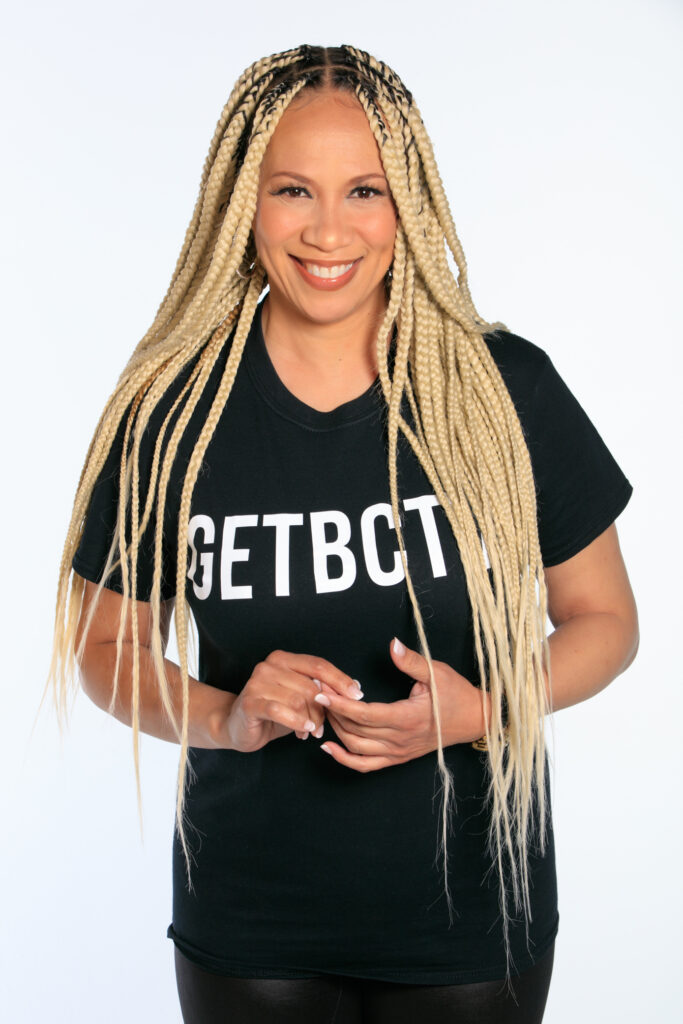
Wow, I don’t even think that I got into a groove of understanding until a couple of months ago [laughing]. Seriously, I spent my entire 20s grinding. My 20s set me up for my 30s where I was able to begin seeing the beginnings of what I had been working for. My 40s allowed me to enjoy the fruits of my labor. I worked very hard in my 20s and started paying off in my 30s. In the 40s I’m jamming and then bam—I’m in my 50s. I just turned 50 this past May.
It really wasn’t until this year that I was able to really lay into everything and be like, “ok…I’m cool now. Let’s get it.”
Last question…how do you want to be remembered? What do you feel your purpose in this life is?
I want people to remember me as someone who shared. As someone who truly appreciated and loved St. Louis during its often sham and drudgery—I still see it as the most beautiful place. I would like to be remembered as someone who saw value in this place. I think St. Louis is a wonderful city. This region is a beautiful region. We have some history that is quite painful, and hurtful, but when I wake up and say, ‘God thank you for letting me be better today, than I was yesterday,’ that’s all that we can do.
I just wanted to be remembered as someone who loved, appreciated, and respected the city that we call St. Louis. But also, someone who loves people.
- Photos Sourced: Suzy Gorman, St. Louis Post, The St. Louis American
Be sure to follow Tammie Holland on Instagram @tammieholland and log into Facebook to follow her show, This Week with Tammie Holland.
- TAMMIE HOLLAND IN HER OWN WORDS: HER CAREER, HER LIFE, AND HER LOVE FOR HER CITY - Thursday, September 22, 2022
- The Photograph Is A Love Story Told Right… - Thursday, February 13, 2020
- Gotta Be Lovin The Hamiltones - Wednesday, November 21, 2018




